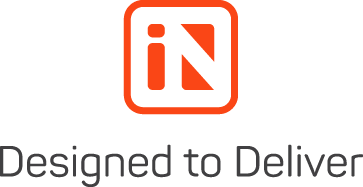Introduction to eCommerce Fulfilment
eCommerce fulfilment is the process through which online businesses store, pack, and ship their products to customers. A well-optimized fulfilment process is crucial for ensuring customer satisfaction, reducing costs, and maintaining efficient operations.
In this guide, we’ll cover every aspect of eCommerce fulfilment to help you make informed decisions for your online business, from order processing to inventory management, shipping, returns, and selecting the right fulfilment partner.
Order Processing and Management
Efficient Order Processing Workflow
Developing a streamlined order processing workflow is essential for timely order fulfilment. The key steps in this process include:
- Order receipt and confirmation
- Order review and fraud detection
- Inventory allocation
- Order picking and packing
- Shipping label generation
- Order dispatch and tracking
- Customer communication
Order Management Systems
Investing in an order management system (OMS) can simplify order processing and improve efficiency. An OMS automates various tasks, such as order tracking, inventory updates, and customer communication, allowing you to focus on other aspects of your business.
Inventory Management and Warehousing
Inventory Control
Proper inventory control is crucial for reducing stockouts and overstock situations. Key inventory management techniques include:
- Just-In-Time (JIT) inventory
- Dropshipping
- Backordering
- Safety stock
Warehouse Management
A well-organized warehouse is essential for efficient order fulfilment. Essential warehouse management practices include:
- Efficient warehouse layout
- SKU management
- Barcode scanning
- Quality control checks
- Seasonal inventory adjustments
Shipping and Logistics
Shipping Options
Offering various shipping options can enhance customer satisfaction. Consider providing:
- Standard shipping
- Expedited shipping
- International shipping
- In-store pickup or local delivery
Shipping Carriers
Selecting the right shipping carrier is essential for cost-effective and reliable deliveries. Compare carriers based on factors such as pricing, speed, reliability, and customer service.
Shipping Costs and Strategies
Implement shipping strategies that balance costs and customer expectations:
- Free shipping (order minimums, select products)
- Flat rate shipping
- Real-time carrier rates
Returns Management
Clear Return Policies
A transparent return policy can boost customer confidence. Outline guidelines for returns, exchanges, and refunds, including timeframes and eligibility requirements.
Streamlined Returns Process
Simplify the returns process by:
- Providing pre-printed return labels
- Offering easy-to-follow return instructions
- Communicating promptly with customers about return status
Choosing the Right Fulfilment Partner
Assessing Fulfilment Providers
Consider the following when evaluating potential fulfilment partners:
- Cost and pricing structure
- Warehouse locations and capacity
- Technology and integration capabilities
- Shipping options and carrier partnerships
- Customer service and support
Third-Party Logistics (3PL) Providers
3PL providers offer comprehensive fulfilment services, including warehousing, inventory management, order processing, and shipping. When selecting a 3PL partner, consider factors such as scalability, flexibility, and the ability to handle your specific product types and volume.
Key Metrics for eCommerce Fulfilment
Monitoring fulfilment performance is essential for continuous improvement. Key metrics to track include:
- Order accuracy rate
- Order cycle time
- Inventory turnover rate
- Perfect order rate
- Return rate
- Shipping cost per order
By analyzing these metrics, you can identify areas for improvement and take appropriate action to optimize your fulfilment processes.
Emerging Trends in eCommerce Fulfilment
Staying up-to-date with the latest trends in eCommerce fulfilment can help your business stay ahead of the competition. Some emerging trends include:
Sustainable Packaging
As environmental concerns grow, adopting eco-friendly packaging solutions, such as biodegradable materials and reusable packaging, can attract environmentally conscious customers and reduce your carbon footprint.
Robotics and Automation
Incorporating robotic solutions and automation technologies into your fulfilment operations can increase efficiency, reduce errors, and lower operational costs.
Same-Day and Next-Day Delivery
Fast delivery options are increasingly important to customers. By leveraging local fulfilment centres or partnering with on-demand delivery services, you can offer same-day or next-day delivery to meet these expectations.
Omnichannel Fulfilment
Integrating your online and offline sales channels can provide a seamless shopping experience for your customers. Offer services such as in-store pickup, ship-from-store, and easy returns to create a cohesive omnichannel strategy.
In conclusion, mastering eCommerce fulfilment is essential for any online business looking to enhance customer satisfaction, improve efficiency, and stay competitive. By understanding and implementing best practices in order processing, inventory management, shipping, returns, and partner selection, you can set your business up for long-term success.

